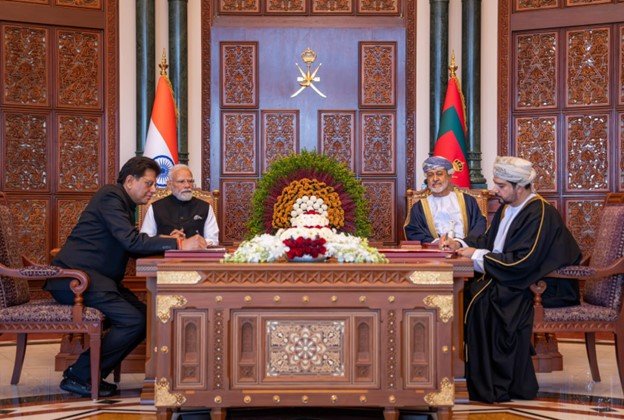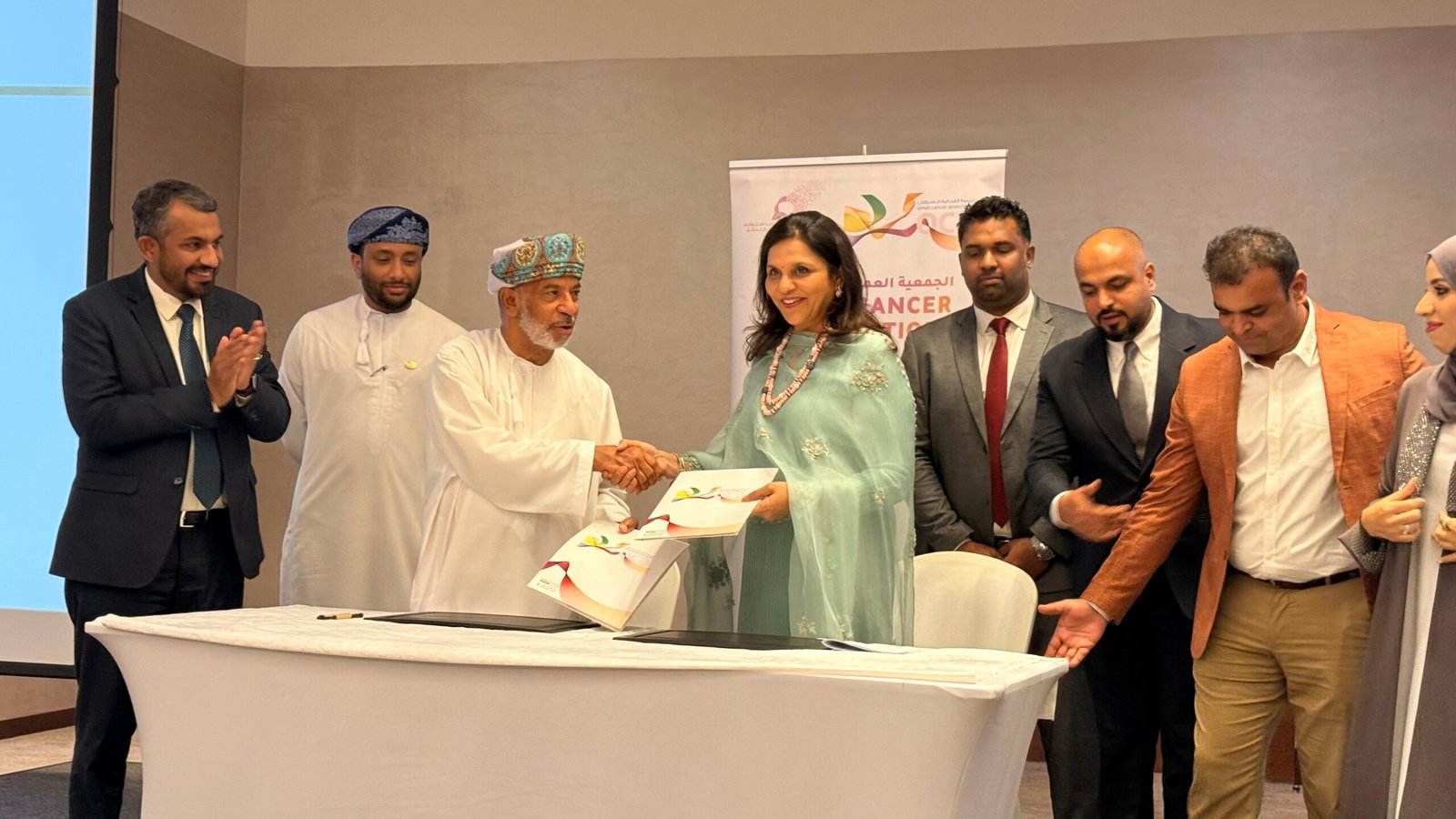Temple officials say as many as 12,500 volunteers, most of them from the US, Canada and India, contributed to the eight-year building project, spread across a nearly 200-acre property
This is a story about Shivani Patel, 24, who decided to give up her corporate job at L’Oréal last December. “I wanted to do something that was a little bit bigger than myself,” said Patel, who graduated in 2020 from Rutgers with degrees in supply chain management and marketing, reported gothamist.com.
Her next role, which started in February, was unpaid: She spent months helping build what is today known as the largest Hindu temple in the U.S: the BAPS Akshardham in central New Jersey.
Temple officials say as many as 12,500 volunteers, most of them from the US, Canada and India, contributed to the eight-year building project, spread across a nearly 200-acre property. They contend the work, started in 2015, is a testament to the faith of what is called the Swaminarayan community, whose roots trace back to western India in the early 1800s.
The result of their labour was on full display at a “grand dedication ceremony” on Sunday to which spiritual leaders and elected officials had been invited. It was webcast on the BAPS website. Prime Minister Narendra Modi sent a congratulatory message, noting the temple “showcases Indian architectural excellence and our glorious ancient culture and ethos.”
But the grand building is also wrapped controversy. A pending class action lawsuit alleges the construction at the Robbinsville site and other temples operated by BAPS was aided by the forced labour of hundreds of immigrant workers from the lowest strata of Indian society, who toiled in poor conditions for a little over $1 an hour. The building projects started in 2004 and the alleged wrongful conduct spanned some 17 years, according to the lawsuit.
Those same allegations also figure in a federal investigation, which came to public attention after federal government officials, including from the FBI, Labor Department and Homeland Security, raided the property in 2021. The class action, filed by Brooklyn-based employment attorney, Patricia Kakalec, came after a worker died at the site.
Through a spokesperson the temple and individual officials named in the lawsuit – including Kanu Patel, the CEO of BAPS Swaminarayan Sanstha Inc. – denied the charges, claiming the workers in the class action were like the thousands of other faithful who willingly donated their time and labour, without charge. They note as well that some workers have dropped out of the civil case. Nonetheless, the allegations hang over the Robbinsville opening, as well as temple building projects in other states.
“Worship through seva – or volunteerism – is the fundamental essence of the BAPS community,” said Yogi Trivedi, a temple spokesperson, in a statement. “The artisans who helped to build our mandir came to the US as volunteers, not as employees. They temporarily left their jobs and families to perform seva alongside hundreds of other non-artisan volunteers from all across America and around the world.”
For her part, Shivani Patel said she was reluctant to comment on the case. But, she said her own experience bore no resemblance to the allegations. “What I can say is my time here as a volunteer, I felt nothing but love, support, empowerment, unity, and overall just a sense of peace and shanti here on this campus,” she said.
The temple took a long and circuitous path to Robbinsville, where it is nestled in a community that sits just outside of Trenton.
The construction of the temple was an extraordinary and elaborate undertaking: the main structure or Mahamandir, with its 189-foot tower, and the surrounding structures required the quarrying of 2 million cubic feet of stone, sourced from around the world: limestone from Bulgaria, sandstone from Rajasthan, red granite from south India and marble from Italy and Thassos, Greece.
“The employer confiscated the employees’ passports,” said attorney Kakalec, who represents nine laborers who sued BAPS and several of the organization’s officials in 2021. “They weren’t able to leave. There were guards, and their movement was monitored.”
One worker, Mohan Lal, died on site, according to the lawsuit, but Kakalec said she couldn’t disclose details of his death. Three others died in India “shortly after leaving the United States.”
The lawsuit is on hold, pending resolution of the federal inquiry, according to court papers and Kakalec, the attorney. The status of the federal case is unclear, though there are no signs it will impede Sunday’s dedication.
“We can neither confirm nor deny any investigation,” said Matthew Reilly, a spokesperson for the U.S. Attorney’s office in Newark.
Documents submitted to the court in the civil lawsuit, however, note that 12 of the original 21 plaintiffs had asked to withdraw from the case and that the federal investigation was proceeding.
Once in the US the workers, a total of around 200 over the years, according to the lawsuit, claim they were subjected to grueling conditions, working 87 hours a week, seven days a week, with most days lasting 12 and a half hours
News of the withdrawal of some plaintiffs was celebrated by some Hindu groups and publications, including the Hindu Post, which in a July 17 article said “BAPS stands vindicated today.”
The lawsuit claims workers were instructed to lie while applying for R-1 religious visas in India.
“At various times, workers were coached by BAPS-related personnel about what to say when they went to the U.S. Embassy for visa interviews,” reads the lawsuit, filed in federal court. “Although the Plaintiffs and R-1 workers would be performing manual labour for pay at the temples, they were told to describe their work in the United States as volunteer work at the temples, and to say that they would be performing the work as a service to the deities.”
Once in the US the workers, a total of around 200 over the years, according to the lawsuit, claim they were subjected to grueling conditions, working 87 hours a week, seven days a week, with most days lasting 12 and a half hours.
“For these long and difficult hours of work, the workers were paid an astonishing $450 per month, and even less when these Defendants took illegal deductions,” reads the lawsuit. “The workers’ hourly pay rate came to approximately $1.20 per hour – well below the applicable federal and state minimum wages, and in fact even less than the federal minimum wage in effect as far back as 1963.”
“They were essentially cheated out of a lot of money,” said Kakalec. “They are motivated to seek justice for themselves and for the other members of the class.”
The abusive conditions were not limited to Robbinsville but extended to BAPS temples in five other locations across the country, including Atlanta, Houston, Chicago and Los Angeles, according to the claim.
The abuse, said the plaintiffs, included caste-based degradation. The defendants “intentionally recruited workers” from the lowest castes in India, and “temple leadership did what they could to remind these marginalized workers of their place in the social hierarchy,” according to the lawsuit.
Anil Wagde, the coordinator of America Against Caste Discrimination, a coalition of over 20 civil rights groups, said that in India, lower caste workers are regularly exploited as bonded laborers.
“That rich and powerful people are bringing such practice in the U.S. under religious visa is extremely disturbing,” said Wagde. “We are working to eradicate and to prevent the spread of caste here in the US. We will be vigilant to act against such cases.”
*************************************************
Readers
These are extraordinary times. All of us have to rely on high-impact, trustworthy journalism. And this is especially true of the Indian Diaspora. Members of the Indian community overseas cannot be fed with inaccurate news.
Pravasi Samwad is a venture that has no shareholders. It is the result of an impassioned initiative of a handful of Indian journalists spread around the world. We have taken the small step forward with the pledge to provide news with accuracy, free from political and commercial influence. Our aim is to keep you, our readers, informed about developments at ‘home’ and across the world that affect you.
Please help us to keep our journalism independent and free.
In these difficult times, to run a news website requires finances. While every contribution, big or small, will makes a difference, we request our readers to put us in touch with advertisers worldwide. It will be a great help.
For more information: pravasisamwad00@gmail.com








